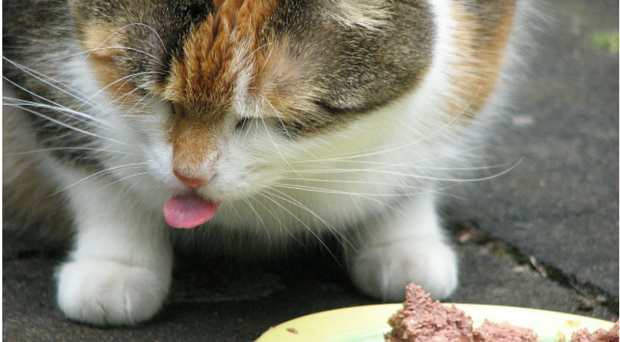
The ability to detect bitter chemicals is thought to have evolved because it helps animals avoid toxic compounds often found in plants. All cats, from pets to wild tigers, eat little plant material. But domestic cats may still encounter bitter flavors in food and medicines.
Pet cats have a reputation for being rather unpredictable in their dietary choices. This could be explained by their perception of bitter, which differs from other mammals because of variations in their repertoire of bitter receptors.
In a new study, the behavior of two different cat bitter taste receptors were studied in cell-based experiments, investigating their responsiveness to bitter compounds, and comparing them to the human equivalents.
TAS2R38 is a bitter taste receptor in humans of which some people have ‘supertaster’ variants that give them an extreme sensitivity to bitter compounds, explaining some people’s strong aversions to broccoli and brussels sprouts.
Compared with the human TAS2R38 receptor, the cat version, Tas2r43, was 10-fold less sensitive to a key bitter compound known as PTC and didn’t respond at all to another bitter compound, PROP.
Like its human counterpart, the cat bitter taste receptor was activated by the bitter compounds aloin (found in the aloe plant) and denatonium (used to deter children and pets from consuming chemicals such as antifreeze) but responded differently to the compounds.
The cat receptor was less sensitive to aloin and more sensitive to denatonium than the human receptor. It also differed from the human taste receptor by being insensitive to saccharin, an artificial sweetener that tends to have a bitter aftertaste in humans.
These insights and future discoveries will be invaluable in formulating appealing food for cats, as well as enhancing the acceptability of their medications.
Nancy Rawson
AFB International
Co-author Nancy Rawson from AFB International, a pet food flavor company, said: “We confront the challenge of ‘finicky cats’ every day. As such, it is exciting to find an unexpected receptor response to bitter compounds that has never been described in the literature to date for any other species.
“These insights and future discoveries will be invaluable in formulating appealing food for cats, as well as enhancing the acceptability of their medications.”
Joseph Rucker, also a co-author, from Integral Molecular, a biotechnology company, said: “Feline bitter taste has not been well studied. We applied our experience in studying membrane proteins, such as taste receptors, to enable this first glimpse into how domestic cats perceive bitterness in food at a molecular level.
“We were surprised to see that one of the cat taste receptors responded to a more limited range of bitter compounds compared to humans, suggesting that cats may be detecting a narrower, or at least a different, repertoire of bitter-tasting compounds.”
Comments